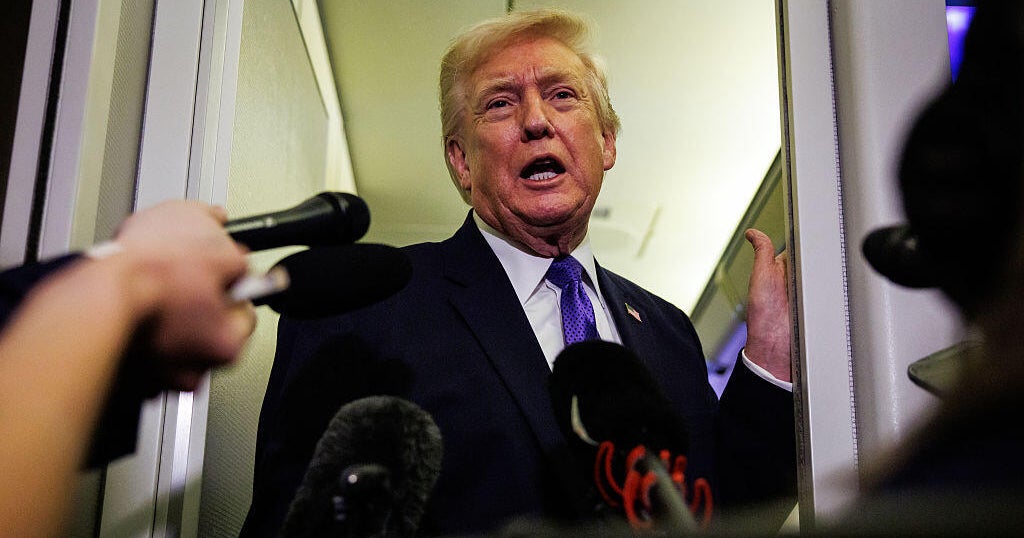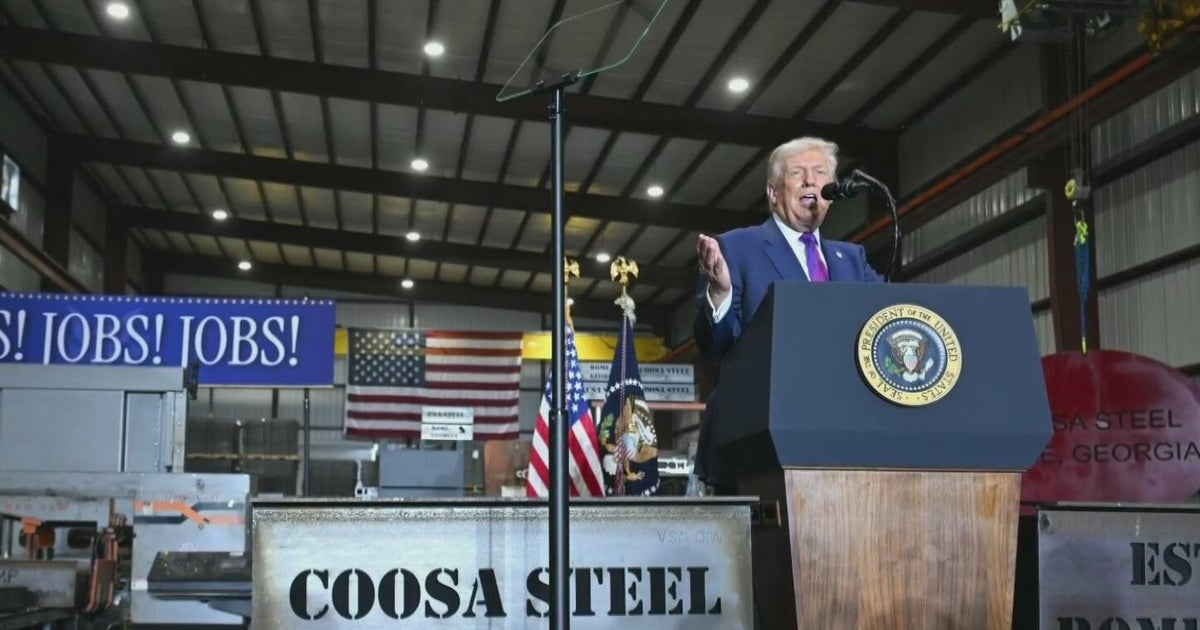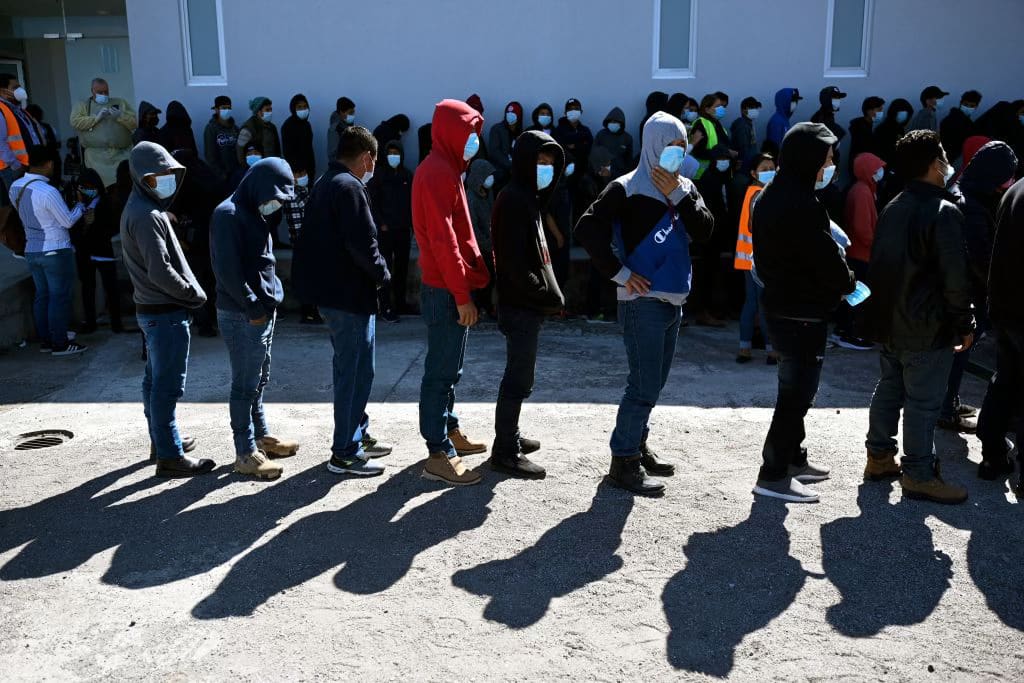Migrants camp at Mexico City stadium as U.S. holds midterm elections
MEXICO CITY -- Thousands of Central Americans dreaming of getting to the United States awoke Tuesday to donations of fruit and hot coffee at a sports stadium in Mexico's chilly capital as the U.S. held midterm elections. President Donald Trump has made the migrant caravan a central issue in Tuesday's vote.
Authorities counted more than 2,000 migrants at the Jesus Martinez stadium late Monday, and a steady flow continued into the night. The facility has capacity to hold 6,000, officials said, and four big tents set up for sleeping filled up. Women and children slept apart from the men, who were relegated to concrete bleachers, while the city's central market supplied 3.5 tons of bananas and guavas to refuel the crowd.
Still hundreds of miles from the U.S. border, the migrants dozed on thin mattresses with blankets to ward off the chill in a city some 7,300 feet above sea level -- a big change after trudging for three weeks in tropical heat. Temperatures dropped below 52 degrees Fahrenheit during the night.
Nashieli Ramirez, ombudsman for the local human rights commission, said the city was preparing to accommodate as many as 5,000 people. The lead caravan is estimated to have about 4,000 participants and several smaller groups are trailing hundreds of miles to the south.
Many of the migrants sought treatment for blistered and aching feet, respiratory infections, diarrhea and other maladies. City officials administered vaccines for tetanus and influenza. The Oxfam charity offered to donate 20 portable toilets.
Tania Escobar, a nurse with Mexico City's public health department, said from a medical tent that demand was high for consultations. "Since we got here, we have not stopped," she said.
Melvin Figueroa, a 32-year-old from Tegucigalpa, Honduras, was with his pregnant wife and two children, 6 and 8. He took the 6-year-old girl to the tent because her eyes were irritated and "she throws up everything she eats."
More migrants were trudging along the highway between the city of Puebla and the capital, trying to hitch rides from passing vehicles.
Mr. Trump has seized on the caravan and portrayed it as a major threat, though such caravans have sprung up regularly over the years and largely passed unnoticed. He ordered thousands of troops to the U.S.-Mexico border. The Pentagon said Monday more than 5,100 U.S. troops are now stationed across the border with Mexico. Their mission is to keep caravans of Central Americans out.
CBS News' Mireya Villarreal saw a steady stream of military vehicles in one south Texas border town. Where a week ago there was an empty field, there's now at least 300 troops. The soldiers are there as backup for Customs and Border Patrol agents.
Mr. Trump has threatened to detain asylum seekers in tents cities and insinuated without proof that there are criminals or even terrorists in the group.
In dozens of interviews since the initial caravan set out from Honduras more than three weeks ago, migrants have said they are escaping poverty and rampant violence. Many are families traveling with small children. Some say they left because they were threatened by gang members or had lost relatives to gang violence. Others say they hope to work, secure a good education for their children and send money to support relatives back home.
Alba Zoleida Gonzalez, 48, from Valle, Honduras, said she walked for five hours Monday before catching a ride on a tractor-trailer with about 150 other migrants. Her calf muscles were aching, but that was a small price to pay for the chance at a life better than the one back home.
"I looked for work, and nothing," Gonzalez said, adding that her husband had been robbed and had to hand over everything he made selling crabs so his assailants wouldn't do worse. "And when one does find a little job, they kill you for the money," she said.




